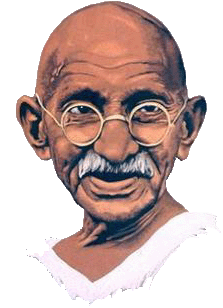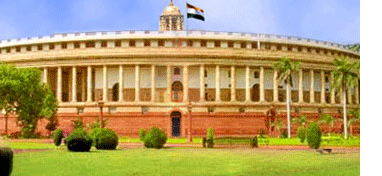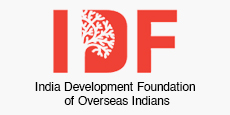Menu
- Home
- About Us
- India - Serbia Relations
- Consular Services
- Renunciation of Indian Citizenship / Surrender Certificate
- Police Clearance Certificate
- Draft Overseas Mobility (Facilitation & Welfare) Bill, 2025
 (PDF - 110.12 KB)
(PDF - 110.12 KB) - Travel Advisory
- Emergency Certificate
- Passport Services
- Other Consular Services
- Overseas Citizen of India (OCI) Card.
- e-Visa
- Visa Services
- Information for Indian students
- Registration of Indian Nationals
- Circulars for Indian Nationals
- Downloads
- GLOBAL PRAVASI RISHTA PORTAL
- eCARe
- Media Center
- E-Citizen/Tenders
- Tenders/Notification
- CORRIGENDUM- Hosted Buyer Program Reschedule to 1st week of November 2025
- Global Tender Enquiry for procurement of Semi Combustible Cartridge Case for Rd 125mm HE/HEAT Ammunition
- ALUMEX INDIA-2025 Exhibition
- AgriBiz Connect 2025 from 21–22 August 2025 Hyderabad, Telangana, India
- Bharat International Rice Conference 2025 (BIRC 2025)
- Bharat International Rice Conference 2025 (BIRC 2025)
- Global e-tender for Import of Urea (46:00:00) on Govt. account (E-tender ID: 2025_NFL_236730_1)
- First edition of 'Rising North East'-Investors Summit 2025
- Participation in the Expression of Interest (EOI) for Serbia
- RITES Limited, a Govt. of India Undertaking, is looking for potential firms based at Serbia to work as professional Entity with RITES
 (PDF - 194.8 KB)
(PDF - 194.8 KB) - Corrigendum for the RFQ no TGPWCC0038-Pre-Bid tie up for the selection of Contractor for Design, Engineering, Supply, Construction, Erection, Testing, and Commissioning including 3 years of O & M of (4X300MW) Khavda Solar PV plant
- SOMS 2025” International Exhibition & Conference on Non-Subsidized Specialty Fertilizers (Soluble, Organic, Micronutrient & Bio Stimulants)
- SOMS 2025” International Exhibition & Conference on Non-Subsidized Specialty Fertilizers (Soluble, Organic, Micronutrient & Bio Stimulants)
- EOI FOR FLOATING SYSTEMS - MANPVT0005
- Notice for online bidding for global tender issued by South Eastern Coalfields Ltd. (Global e-tender no. 02 dt 10/12/2024)
- Global e-tender for Import of Urea (46:00:00)
- Global e-tender for Import of Urea (46:00:00) on Govt. account (E-tender ID: 2024_NFL_204844_1)
- EOI FOR SUPPLY OF CONTAINERSIED SOLUTION OF BATTERY MODULES, BMS AND EMS
- Global e-tender for Import of DAP (18:46:00)
- Extension of Tender Notice for empanelment of packers and shippers for Embassy of India, Belgrade - Last date 23.08.2024
 (PDF - 19.37 KB)
(PDF - 19.37 KB) - IESS XII, 27-29 November 2024, Chennai - Serbia
- SANJEEVANI – An International Event on Healthcare and Wellness 13 – 15 September 2024, Chennai, Tamil Nadu, India
- Annual Flagship Global Exhibition – Indiasoft 2025: International IT Exhibition & Conference during March 19-21, 2025 in New Delhi
- 10th India International MSME Expo & Summit 2024
- Global e-tender for Import of DAP (18:46:00)
- Tender Notice for empanelment of packers and shippers for Embassy of India, Belgrade - Last date 22.07.2024
 (PDF - 35.15 KB)
(PDF - 35.15 KB) - Global e-tender for Import of Muriate of Potash (MOP)
- World Food India 2024
- PRINTPACK INDIA, 1-5 February 2025, IEML,Greater Noida,Delhi/NCR, INDIA
- Tender for SUPPLY OF POLYETHYLENE OXIDE (PEO) as per specification SCR-D-RM-011 Rev01
- Global e-tender for Import of DAP (18:46:00)
- Mega RBSM - the 2nd Edition of UP International Trade Show scheduled from 25 - 29 September 2024 at Greater Noida, Uttar Pradesh, India
- Global e-tender for Import of DAP(18:46:00)
- Invitation to visit India under sponsored Reverse Buyer Seller Meet (RBSM) to be held at Chennai, Tamilnadu, India on 26th & 27th June 2024 : with accommodation & reimbursement of airfare
- Tender for shifting of office equipment and furniture
 (PDF - 126.02 KB)
(PDF - 126.02 KB) - OFCH Global Tender Enquiry document and Tender Notice
- Tender Notice for Procurement of Hydraulic Pumps and Hydraulic Motors suitable for BEML make Hydraulic Excavator ModelBE-300LC and BE1000-1 and 70 KL Water Sprinkler Model BWS70 and for Procurement of Hydraulic Pump and Steering Pump suitable for BEML make 60 Te Rear Dump Truck, Model -BH60/BH60M through OEM/OPM/OES only
- BHEL Hyderabad - Procurement of SS Seamless U Tubes for HP Heaters
- Andaman & Nicobar Admin - Global tender for Seaplane/Helicopter/Small passenger aircraft services
- Global EOI for seaplane/helicopter/small passenger aircraft services in Andaman & Nicobar Islands
- Global e-Tender Notice for procurement of 30 x-ray based full body scanner systems
 (PDF - 865.93 KB)
(PDF - 865.93 KB) - EoI for long term Technology Collaboration Agreement (TCA) for Air Defence Gun
- Expression of Interest: Ordnance Factory, Katni
- Procurement of Fuze ISD (Filled) for 30 mm Grenade VOG-17 AGS-17
- Supply and I&C of ESE Lightning Arrestors for 129 MW SCCL Solar Photo Voltaic Power Project at Telangana Closing date: 10.06.2019)
- Supply of FCBC and Battery bank for 129 MW SPV Project, SCCL Telangana (closing date 11.06.2019)
- Supply of 1.1KV 1CX630 Sqmm AC Cables for 129 MW SCCL Solar Photo Voltaic Power Project at Telangana (Closing date: 08.06.2019)
- Supply of 1.1KV 1CX400 Sqmm DC Cables for 129 MW SCCL Solar Photo Voltaic Power Project at Telangana
- Supply, I&C and O&M for BOS and Transmission line of for 10 MW SPV Project, STPP, Pegadapally, SCCL Telangana. (Closing date: 07.06.2019)
- Supply of 1Cx300 sqmm 33 kV(E) AL XLPE Armd for 129 MW SPV Project, SCCL Telangana (4 sites). (Closing date: 06.06.2019)
- Supply of 3kVA UPS with batteries for 129MW Solar PV Plant at SCCL, Telangana
- Tenders/Notification
- Public Notices & Circulars
- Auction Notice of old items of Embassy on 7th February 2024
- Celebration of Republic Day of India on 26 January 2024
- Advertisement for the post of Clerk and Gardener cum concierge
- Celebration of Independence Day of India on 15 August 2023
 (PDF - 65.58 KB)
(PDF - 65.58 KB) - Public Notices & Circulars Archive

- Job Vacancy
- Applications for 66-67 Know India Program (KIP)
- Hindi Blog Competition for Foreign Nationals

- Republic Day celebration on 26 January 2023
- Applications for 63-65 Know India Program (KIP)
- Scholarship Programme for Diaspora Children" (SPDC) guidelines

- Announcement Of ICCR Scholarship Slots Under AYUSH Scholarship Scheme for the Academic Year 2022-23
- Useful Links
- Economy & Commerce
- Tourism
- Ayurveda
- Azadi ka Amrit Mahotsav.

- September 2023
- August 2023
- July 2023
- June 2023
- May 2023
- April 2023
- March 2023
- February 2023
- January 2023
- December 2022
- November 2022
- October 2022
- July to September 2022
- April 2022 To June 2022
- August 2021 To March 2022
- Azadi ka Amrit Mahotsav.
- Digital Painting and Poster Making Competition
- Gala Performance - EAM's message
- Student corner
- Contact Us












